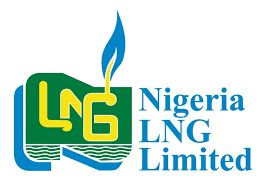LNG Train 7: Local Content saves Nigeria $2bn

This content has been archived. It may no longer be relevant
The implementation of the Nigerian Oil and Gas Industry Content Development (NOGICD) Act has saved Nigeria an estimated $2billion in the Engineering Procurement and Construction (EPC) contract for Nigeria LNG Train 7 Project.
The Executive Secretary of the Nigerian Content Development and Monitoring Board (NCDMB), Engr. Simbi Kesiye Wabote, disclosed this at the 2020 Annual Capacity Building Workshop organised by the Board for the Judiciary.
The workshop was held via zoom and it drew over 117 participants, including Justices of the Supreme Court, Appeal Court, National Industrial Court, Federal High Court and external solicitors.
Wabote, who delivered the keynote address at the workshop stated that contrary to wrong insinuations held in some quarters, ample evidence has proven that sustainable Local Content practice reduces the cost of oil and gas projects in addition to creating job opportunities and economic prosperity.
He gave example with the LNG Train 7 EPC bid, where Saipem Contracting Nigeria and its consortium won the contract with a much lower bid than its competitor, leveraging its commitment to local content and investments in Nigeria in the last 50 years.
He said: ‘’In the LNG Train 7 project contract which was recently concluded and awarded, the difference in price between Saipem that had established itself in Nigeria and the second lowest bidder that was coming from outside the country was $2billion. That’s a huge sum of money that this country would have lost if not for the drive for the development of Local Content.
The other consortium had no footprint in-country and it proposed to put extra $2billion on the back of the project to develop local capacity to execute the project. This is evidence of cost savings associated with the development of Local Content.”
Admitting that developing Local Content and building capacity would always entail some costs at the beginning, the Executive Secretary insisted that such costs ultimately gets reduced overtime and creates much needed jobs and stability in the polity. He also clarified that the focus of Nigerian Content implementation is not Nigerianization, rather it encourages domiciliation of capacities and promotion of foreign direct investments and home grown investments.
He assured that the NOGICD Act would always protect investments in-country, adding that companies that build capacities are given first right of refusal in industry projects. “The law is a protective instrument for businesses. There are cable manufacturers in Lagos. If there is any opportunity to supply cables to oil and gas companies in Nigeria, those companies have the right of first refusal.”
On the possibility of recording 100 percent Nigerian Content in the sector, the Local Content boss clarified that “the aspiration is neither possible nor desirable, especially for a developing country like Nigeria. You still need foreign direct investments.
The industry is a very vast business, with high intensive technology. You still need to leave some space for foreign participation and investment to grow the industry. But you are going to see 70 percent. That is our aspiration, growing from five percent which was the level when Nigerian Content started.”
The Executive Secretary said Nigerian Content implementation led to the development of huge infrastructural and human capacities, which kept the operations of the oil and gas industry running smoothly at the height of COVID-19, notwithstanding the exit of most expatriates. ”Despite the impact of COVID-19 and expatriates leaving the country, Nigeria’s crude oil production never stopped. We still produced to the limit that were stipulated for us by OPEC. This confirms that Nigerian Content helped the oil and gas industry and ensured that we never felt the impact of COVID-19,” he said.

Leave a Reply
You must be logged in to post a comment.